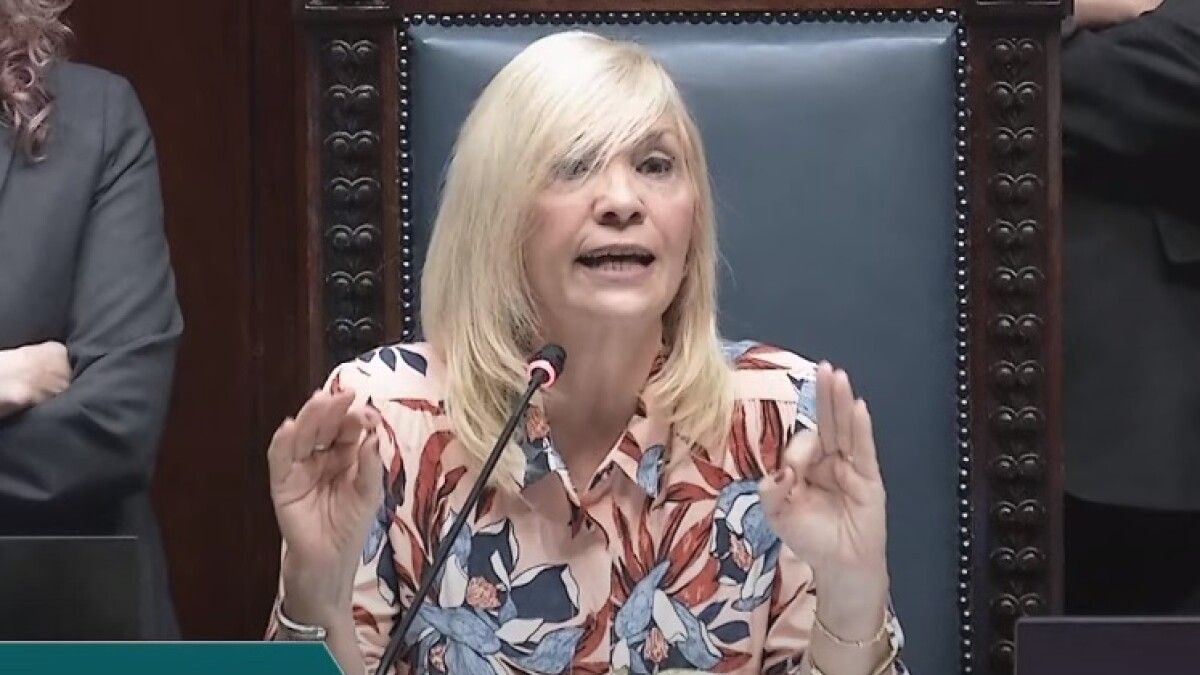He Wide Front was raising a political issue with the aim of discussing the latest events caused by the Marset case, when it was interrupted repeatedly by officials from the ruling party; which caused the president of the Parliament and vice president of the Republic, Beatriz Argimonthreaten to end the session.
“It doesn’t work because of everyone’s shouts,” said Argimón in the middle of the session that was constantly interrupted by the shouts of ruling party leaders. The senator Silvia Nane was founding the position of the Frente Amplio regarding the Marset case and the political crisis that it generated within the government when the interference of other senators caused him to stop his speech.
During the session, a prior agreement had been reached where the senator of the Wide Front I would make a proposal and then proceed to the vote in a half-hour intermission so that each party could determine its position. Subsequently, they would return to the room to vote for or against the opposition’s proposal.
However, Nane’s foundation was constantly interrupted. “It’s difficult, I’m doing my best,” said the senator who had her speech repeatedly. Against this, Argimon He threatened to end the session if the shouting continued.
“If they continue with the dialogue, I will suspend the session,” he warned and added that “it does not work with everyone’s shouts.” However, the session was able to continue when the shouting subsided, although he almost be suspended. After that, Nane was able to complete his rationale and a half-hour intermission was voted on that ended up lasting over an hour and a half.
After the extension of the intermission period, a vote was taken again to add another half hour so that the parties could continue discussing the basis raised by the Frente Amplio.
What did the Broad Front propose?
“We are in a scandal”, Senator Nane summarized, who would be in charge of the eventual interpellation of the former Minister of the Interior, Luis Alberto Heber, which was voided due to his resignation confirmed yesterday. The opposition legislator stated that she is facing a political crisis. “Parliament has to give clear signals to citizens. It is unacceptable that leaders of the Executive power hide information from Parliament,” he said, and asked that this be something “questioned” by all parties.
“The entire Senate has the opportunity to express itself on the gravity of all these matters. We need to advance in instruments that provide the State with protection from the influence of drug trafficking on political issues. “This requires political will and credibility, which is what is lacking right now,” he added.
The scandal unleashed by the complaints of the former vice chancellor Carolina Ache about the attempts of the leaders involved to hide and destroy documentation and evidence about the government’s knowledge of who Marset was at the time of issuing the Uruguayan passport in his name; did not culminate in the resignations of Heber, his second in the portfolio Guillermo Maciel and the chancellor Francisco Bustillo. And neither with the press conference given by the president, in which he admitted what happened and defended the good actions of the then members of his government cabinet.
For him Broad Front, The actions of the president and the government were insufficient. Under this premise they also planned for the Senate to rule on the matter.
The rejection of the ruling party
As expected after the public support issued, the pro-government senators rejected the political matter motion raised by the Wide Front under the argument that “the president’s decisions are sufficient to turn the page“.
Among the points explained to reject the debate on the Marset scandal in the parliamentary session, the ruling party listed that “the political crisis was duly resolved with the intervention and decisions of the Republic President, communicated in a timely manner at a press conference; and are enough to turn the page and move on”; that “the questions that remain to be elucidated are all in the scope of Justice and it is there where the value of the testimonies that have been given will be known”; and, finally, that “making room for this proposal of Political Matter, which seeks to replace an interpellation of the already resigned hierarchs, would only generate erosion of political relations in this Body and would put the institutional bases into unnecessary and inappropriate questioning.”
Source: Ambito




